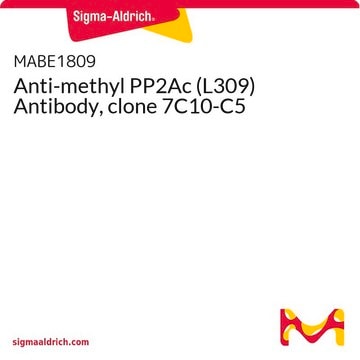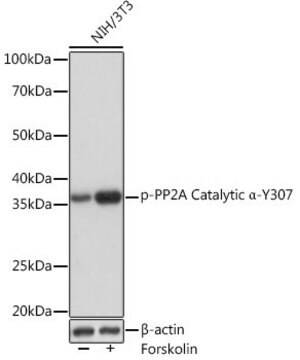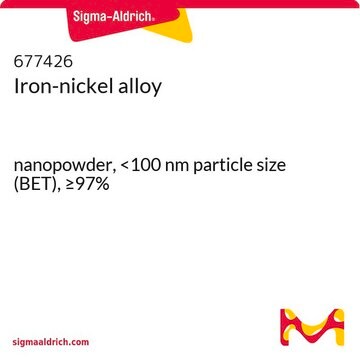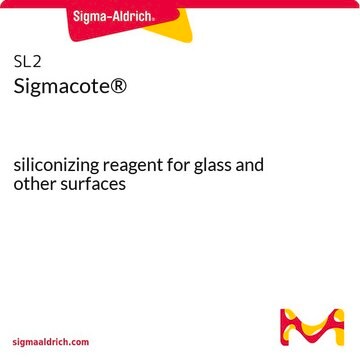05-577
Anti-PP2A Antibody, C subunit, demethylated, clone 4b7
ascites fluid, clone 4b7, Upstate®
Sinónimos:
Anti-NEDLBA, Anti-PP2Ac, Anti-PP2CA, Anti-PP2Calpha, Anti-RP-C
About This Item
Productos recomendados
biological source
mouse
Quality Level
antibody form
ascites fluid
antibody product type
primary antibodies
clone
4b7, monoclonal
species reactivity
vertebrates
manufacturer/tradename
Upstate®
technique(s)
immunocytochemistry: suitable
immunoprecipitation (IP): suitable
western blot: suitable
isotype
IgG
UniProt accession no.
shipped in
wet ice
target post-translational modification
unmodified
Gene Information
human ... PPP2CA(5515)
Specificity
Immunogen
application
Signaling
Neuroscience
Kinases & Phosphatases
Neurodegenerative Diseases
Quality
Target description
Physical form
Storage and Stability
Analysis Note
Positive Antigen Control: Catalog #12-301, non-stimulated A431 cell lysate. Add 2.5µL of 2-mercaptoethanol/100µL of lysate and boil for 5 minutes to reduce the preparation. Load 20µg of reduced lysate per lane for minigels.
Legal Information
Disclaimer
Not finding the right product?
Try our Herramienta de selección de productos.
Storage Class
10 - Combustible liquids
wgk_germany
WGK 1
Certificados de análisis (COA)
Busque Certificados de análisis (COA) introduciendo el número de lote del producto. Los números de lote se encuentran en la etiqueta del producto después de las palabras «Lot» o «Batch»
¿Ya tiene este producto?
Encuentre la documentación para los productos que ha comprado recientemente en la Biblioteca de documentos.
Nuestro equipo de científicos tiene experiencia en todas las áreas de investigación: Ciencias de la vida, Ciencia de los materiales, Síntesis química, Cromatografía, Analítica y muchas otras.
Póngase en contacto con el Servicio técnico








